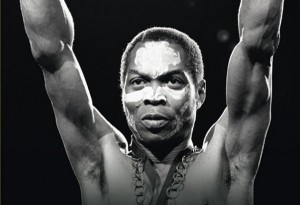Time To Do a Spring Content Audit
 Spring is here, and it is time to do some cleaning, and I am not just talking about around your house. Now is a great time to do an inventory on your online presence by doing a content audit.
Spring is here, and it is time to do some cleaning, and I am not just talking about around your house. Now is a great time to do an inventory on your online presence by doing a content audit.
What is a content audit?
No, a content audit has nothing to do with your taxes. Rather, it is an inventory check of the content on your website, social media or other online platforms.
Why would I want to do a content audit?
The main purpose of having a content strategy is to make sure the information you are presenting online is consistent with your organizational messaging and brand identity. It’s a good idea to do audits to keep your content on point.
What things should I be looking for in a content audit?
This depends largely on what the goals are behind your content strategy. An audit can be an inventory of your whole website, or certain parts of it. Some audits might just look at the effectiveness of your email newsletter or social media strategies. There is also something called content sampling, where you randomly select content on your website to review.
How exactly do you conduct a content audit?
In the simplest fashion by using a spreadsheet, a basic audit for a website will include columns for the following: Page Title, Page URL, Keywords/SEO, Description, Date Published and Audit Date. There you want to go through your website and fill in the rows with the metrics you are auditing. If you use a web traffic reporting tool like Google Analytics or Hootsuite, you would need to match the traffic with the pages.
You will spend your time reviewing the conversion rates and content for your pages on the spreadsheet. Specifically:
- What are the web pages or links with the most or least traffic?
- Are images easy to view and tagged correctly?
- Is your content up to date?
- Are pages meeting the standards for web accessibility?
- Are blog posts written with proper grammar and appropriately embedded SEO keywords?
- Do you need a redesign of your website?
- Are your email and social media outreach consistent with content posted on your website?
- Can some content be repurposed on other platforms?
- Should you stop using a certain platform if it isn’t giving you the needed results?
- Etc… other content questions specific to your audit
Now would be a good time to correct and/or delete any content that no longer serve your purposes. Depending on how much content you are reviewing, like a website with hundreds or even thousands of pages, the process might take a while and you will need to get your co-workers or colleagues to help you.
How often should I do a content audit?
It depends on what your content strategy looks like. Most people do it quarterly or annually to coincide with company financial and marketing reporting. Others do it monthly or even weekly. No matter how often you do an audit, it is always a good idea to review how your content strategy is working for you.
I still need help with doing a content audit
You can contact me or my staff at Global Wire Design about getting further assistance with a content strategy and audit or web design and marketing support. We are hosting an “Extreme Website Makeover” on 14 May where we will showcase a “before and after” of two websites we redesigned recently. Space is limited and priority will be given to current and past GWA clients, so sign up now at info(at)globalwireonline(dot)org.


